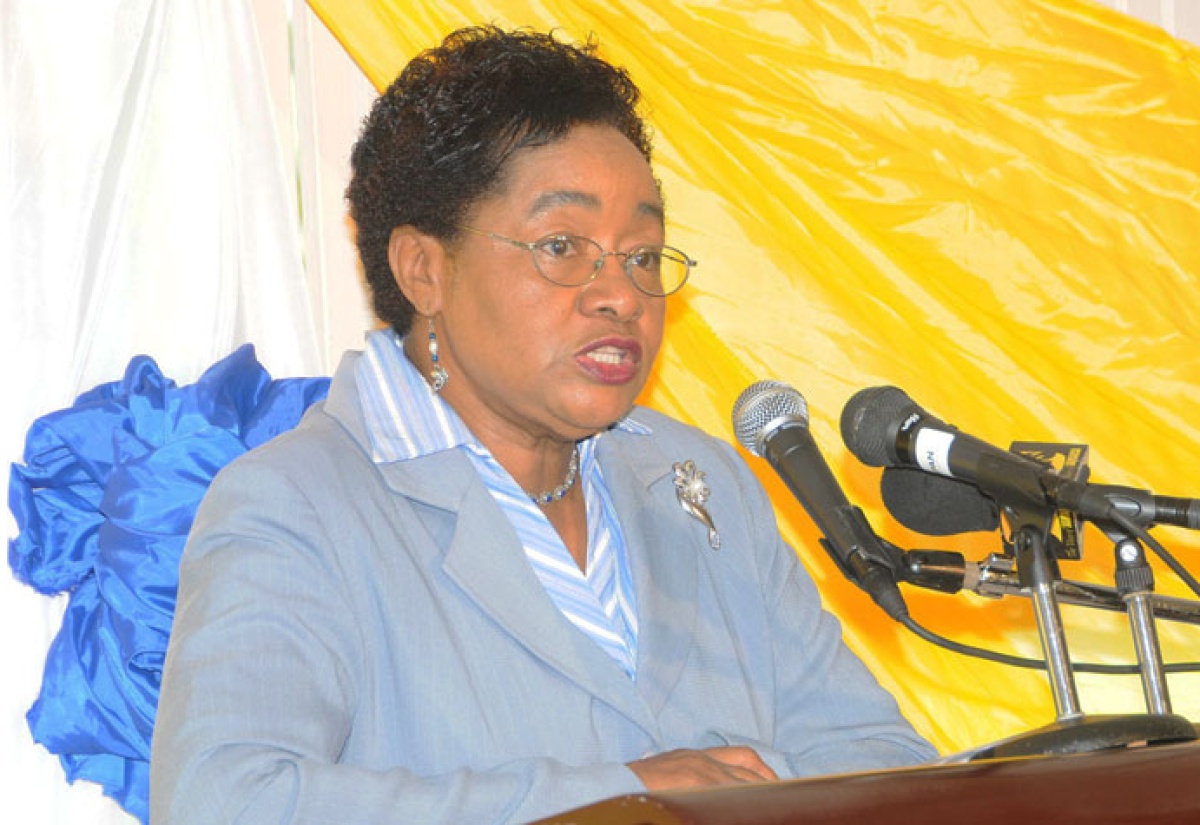Tobacco Regulations, Satisfying Outcome
By: , April 29, 2014The Key Point:
The Facts
- Several measures were implemented, including legislative adjustments that resulted in the banning of advertisement of tobacco products in the electronic media and in cinemas.
- Concerns grew in Jamaica when it was discovered that 70 per cent of new patients attending oncology clinics at the National Chest Hospital were diagnosed with lung cancer in 2012.
The Full Story
The journey to the Tobacco Regulations under the Jamaica Public Health Act has been a long but satisfying one for persons who have played key roles in their enactment.
These include Special Advisor to the Minister of Health on Tobacco Control, Dr. Eva Lewis-Fuller, who shared with JIS News the history of the journey.
The impact of tobacco use was of concern in Jamaica long before the ratification of the Framework Convention on Tobacco Control (FCTC) in 2005.
Several measures were implemented, including legislative adjustments that resulted in the banning of advertisement of tobacco products in the electronic media and in cinemas; prohibition of smoking in health facilities; prohibition of the sale of tobacco products to children under the age of 18 years; and a gradual increase in the taxes on tobacco products.
The Tobacco Regulations come against the background of the FCTC, which was adopted by just under 200 countries 11 years ago.
“The FCTC is an international treaty that was adopted by acclamation at the 56th World Health Assembly in Geneva Switzerland on May 21, 2003 with 192 countries present agreeing. Countries were to then accede to the Convention by ratifying it,” Dr. Lewis-Fuller explained. The convention has since been ratified by 177 countries.
Between 2003 and 2004, a bi-partisan Parliamentary Committee on Human Resources and Social Development (HRSD) examined measures for the prevention and control of tobacco use. After extensive consultations, the Committee supported the ratification of the FCTC on July 7, 2005 and recommended the enactment of tobacco control legislation.
Sections of the society expressed fears that implementation of tobacco control measures could cause a collapse of the Jamaican economy. Cabinet then requested a study (2004-2005) to assess the potential impact. The study found that increasing tobacco taxation would increase prices and provide additional revenue for the Government. Importantly, it projected a reduction in cigarette consumption which was the desired effect.
Concerns grew in Jamaica when it was discovered that 70 per cent of new patients attending oncology clinics at the National Chest Hospital were diagnosed with lung cancer in 2012, and that although the proportion was the same as for 2009, the absolute number of cases had increased by 44 per cent. In addition, 90 per cent of the newly diagnosed lung cancer cases were chronic heavy smokers.
Another disturbing fact uncovered by The Global Youth Tobacco Survey (GYTS) was that the prevalence of cigarette smoking was increasing among young people (13-15 years). It was also felt that conventional public health messages about the risks associated with this addictive behaviour were not proving to be a deterrent.
By 2006, national labelling standards were amended for tobacco packaging. The standards mandated the use of rotating bold health warnings (in text only) on 33 per cent of tobacco packages.
Ten years after the adoption of the FCTC and eight years after its ratification, Minister of Health, Hon. Dr. Fenton Ferguson, decided to go the route of having Tobacco Regulations added under the existing Public Health Act.
According to Dr. Lewis-Fuller, the rationale for this move by the Minister was that the effects of tobacco smoking were fast becoming an epidemic and the Act allowed for the gazetting of regulations in response to public health emergencies or epidemics.
The Regulations took effect on July 15, 2013. The main areas covered by the Regulations are Smoke Free Environment, Tobacco Packaging and Labelling, Requirements for Graphic Health Warnings on 75 per cent of tobacco packaging (now revised to 60 per cent) and Disclosures Regarding Ingredients and Penalties for Violation of the Regulations.
The gazetted regulations were tabled in Parliament in July 2013 and a survey was subsequently conducted to test public reaction. The survey found that over 83 per cent of those surveyed were supportive of the new Regulations and there was a 97 per cent level of awareness.
In the immediate post-promulgation period, a scaled-up public education campaign was mounted focusing on the effects of tobacco on health. A multi-disciplinary and multi-sectoral Tobacco Control Command Centre was established to monitor public comments.
Objections were voiced and the Minister put in place a small team to examine some amendments to the regulations in response to those objections.
The amendments have now been completed. They include a reduction in the size of graphic health warnings from 75 per cent to 60 per cent of the packaging, the removal of the requirement for health warnings on single cigarette sticks, the inclusion of Electronic Nicotine Delivery Systems or e cigarettes, detailing of penalties and requirements for the disclosure of the contents of tobacco products.
The select Committee on HRSD also gave its recommendations which were factored into the amendments. Parliament has been advised of the amendments and they should be gazetted shortly.
The work has continued at the international level where the articles in the convention are being developed. The clause that refers to illicit trade has been developed into a protocol that needs to be ratified by the signatories to the FCTC and the work will continue.
Minister Ferguson in a speech delivered in 2013 on ‘The Endgame for Tobacco’, declared that the “Government of Jamaica is committed to going forward with a strong set of Tobacco Control Regulations that meet the standards of the FCTC and is modelled on the best practices established by forerunner countries. Tobacco control is a process not an event. It is a journey not a destination.”


